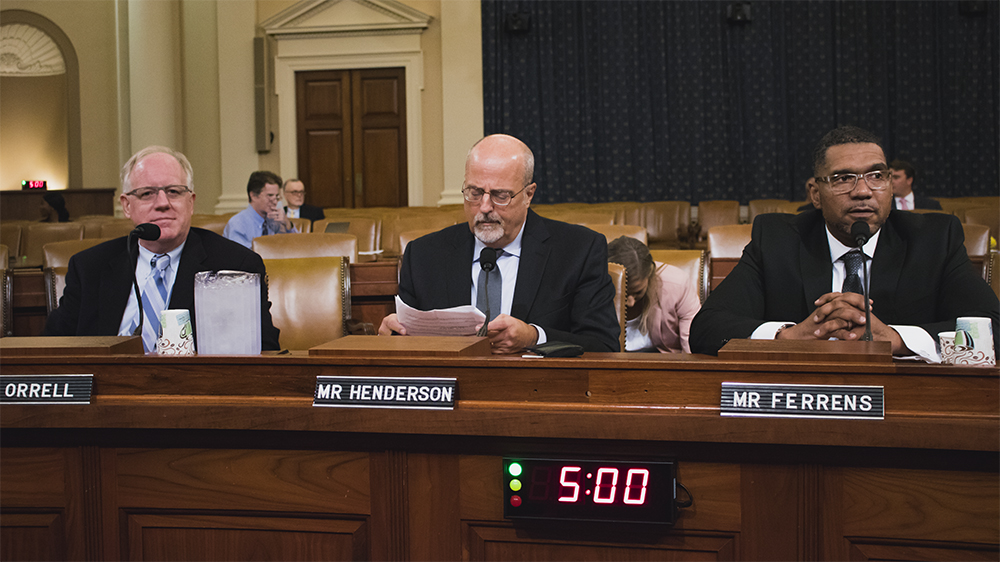Ways and Means Focuses on Bringing Working-Age Men Back into Labor Force
The Ways and Means Human Resources Subcommittee, chaired by Rep. Adrian Smith (R-NE), yesterday held a hearing to examine the decades-long decline of men participating in the labor force and the negative impact this trend has had on our economy, our communities, and our families.
As Chairman Smith said:
“Today, there are more than seven million working-age men in America who are not working or looking for work. Unfortunately, this is not a new phenomenon. The large number of men not in the labor force is a trend which has been growing for the past 50 years. In 1967, 96% of men were working or looking for a job. Today it’s only 88%. And it is even worse for those men without a high school diploma – an alarming 83%, or one in six are out of work.”
He went on to offer statistics highlighting how this decline affects our economy, communities, and families:
- The U.S. ranks second to last, ahead of only Italy, in prime-age male labor force participation among developed nations despite having a record number of job openings since 2001.
- Each year, there are more than 600,000 people released from prison, many of whom are struggling to find work and often end up back in prison – a big cost to communities and taxpayers.
- There are roughly 11 million noncustodial fathers in the United States, with close to 25% of them having no earnings, and therefore unable to support and care for their children.
Members and witnesses explored different ways to address this systemic problem, including programs intended to help working-age men find employment, earn a paycheck, and provide for their families.
One of the Subcommittee’s witnesses, Tyrone Ferrens, shared his own experience about how he overcame his drug addiction and flourished in his new career – all because of “Project JumpStart,” a workforce training program that has helped place over 70 percent of men who enter the program in technical and skilled-based careers that lead to high wages and apprenticeships.
As Mr. Ferrens explained, Project JumpStart provided the tools and motivation he needed to successfully transform his life from prison to his own household:
“I’ve been a recipient of welfare, food-stamps, a lot of government assistance programs and there is no comparison, none whatsoever … I would have much preferred someone given me or exposed me to a program like JumpStart rather than me getting a check on the 3rd… I received training in everything: from math to residential wiring. We had resume preparation and mock interviews … We were taught what employers were expecting from us, and just how to be successful on the job site … something I have never been exposed to before.”
He went on to explain how Project JumpStart’s positive and lasting impact spans across three generations in his family:
“The biggest impact that this program has had on my life is that it goes far beyond my life. My son is the first one to step foot on a college campus. My mother had retired and was struggling on Social Security, and after years of torment that I put her through as an addict, I was able to move her into my home. I became a first-time homeowner last year. My daughter, who is 30 years old, spent half of her life with a father who was an addict and a disgrace and an embarrassment. She is presently in a JumpStart class that is taking place now. She looks up to me, she admires me, and she wants to follow in my footprints. That’s three generations that have been changed from this program.”
As Rep. Mike Bishop (R-MI) said in response to Mr. Ferrens’ personal experiences:
“Your testimony, your story… is really quite inspiring and compelling. I appreciate your testimony and I think it sheds light on an important need in public policy in this country.”
The Ways and Means Committee will continue our work to reform welfare programs to help people earn their own success – and provide for their families – through the dignity of work.
CLICK HERE to learn more about yesterday’s hearing.

